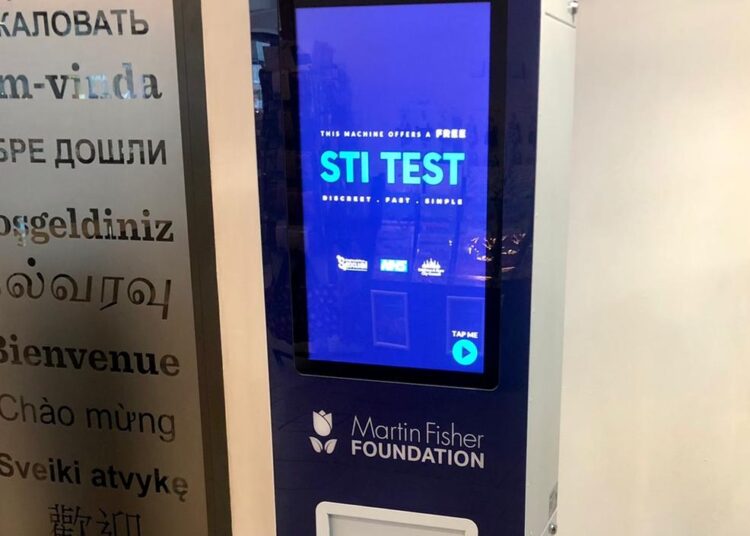Vending machines offering free sexually transmitted infection (STI) kits could boost the numbers getting tested, research suggests.
A pilot study on 11 machines found young people in particular picked up the tests and liked the convenience of testing in their own time.
The research, published in the journal Sexually Transmitted Infections, examined data for STI kits and separate HIV kits installed in vending machines across Brighton and Bristol for a year.
To obtain a test, people had to answer six questions (such as age, gender and time since last test) and enter a code sent to their mobile phone.
Some 2,536 kits were dispensed over 12 months, with the STI kits proving most the popular (74% of vends), the study found.
Most (78%) of kits dispensed were to people aged 16 to 35 and 56% were to men.
Overall, 59% of users had never tested for HIV and STIs before getting the test.
About half (51%) of STI kits were returned via post, which researchers said was lower than the local online service (65%).
However, analysis of 208 user questionnaires showed people liked the instant access offered by the vending machines, together with the fact the service was more confidential.
Some 92% of people thought the machines were user-friendly and 97% would recommend the service to a friend.
Nevertheless, the researchers said there are still some barriers to overcome, with worries about safety and privacy reported by 42% and 66% of people respectively.
Study author Dr Syra Dhillon, who is currently an intensive care medic at Whittington Health NHS Trust, told the PA news agency the vending machines were a “great initiative” particularly for people “who find current methods inaccessible”.
She added: “Some people find that seeking testing at clinics or via a GP can be embarrassing or time consuming and, for a lot of people in the UK, receiving a test kit through the post to a home address is not feasible.
“As part of this study we also conducted user interviews … People really like the confidentiality, speed and convenience aspects of the machines.
“I think we need to consider a cost analysis as a next step and, if that is beneficial, then I’d love to see a national rollout of these vending machines.”
Marc Tweed, service manager at the Terrence Higgins Trust in Brighton and Hove, said: “It’s great news that these sexual health vending machines are reaching some of those who wouldn’t test otherwise.
“In Brighton and Hove, they’re a preferred option for people who are less likely to go to a sexual health clinic or may not want a test to be delivered at home.
“Putting vending machines in spaces like libraries and universities helps to normalise sexual health testing, but the issues raised by users around safety and privacy need to be negotiated to ensure people feel comfortable enough to use them.
“Initiatives like vending machines must also be a piece of a much bigger jigsaw to proactively increase testing for STIs and HIV, including National HIV Testing Week which starts on Monday.”
Mr Tweed called for continued investment in sexual health services, adding: “We need a vision from the Government for tackling soaring STIs and improving the nation’s sexual health – and the funding to do so.”









